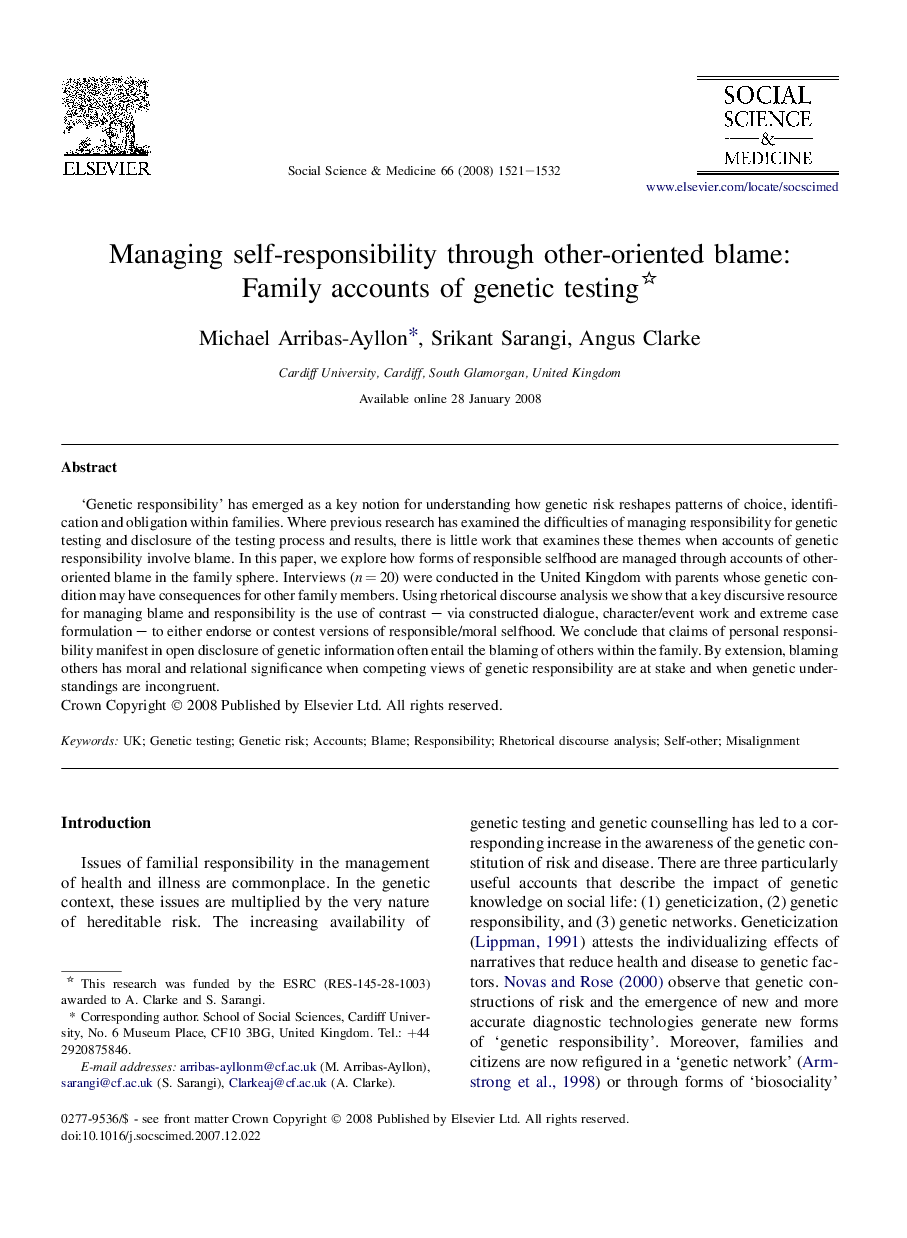| Article ID | Journal | Published Year | Pages | File Type |
|---|---|---|---|---|
| 954629 | Social Science & Medicine | 2008 | 12 Pages |
‘Genetic responsibility’ has emerged as a key notion for understanding how genetic risk reshapes patterns of choice, identification and obligation within families. Where previous research has examined the difficulties of managing responsibility for genetic testing and disclosure of the testing process and results, there is little work that examines these themes when accounts of genetic responsibility involve blame. In this paper, we explore how forms of responsible selfhood are managed through accounts of other-oriented blame in the family sphere. Interviews (n = 20) were conducted in the United Kingdom with parents whose genetic condition may have consequences for other family members. Using rhetorical discourse analysis we show that a key discursive resource for managing blame and responsibility is the use of contrast – via constructed dialogue, character/event work and extreme case formulation – to either endorse or contest versions of responsible/moral selfhood. We conclude that claims of personal responsibility manifest in open disclosure of genetic information often entail the blaming of others within the family. By extension, blaming others has moral and relational significance when competing views of genetic responsibility are at stake and when genetic understandings are incongruent.
